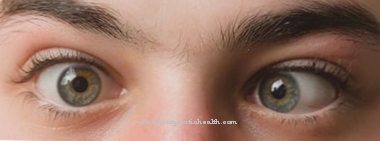The term neurasthenia used to be a common term for a number of nervous complaints. In modern medicine it has largely been replaced by the term chronic fatigue syndrome.
What is neurasthenia?

© designer491 - stock.adobe.com
The term neurasthenia indicates weak nerves, overstimulation of the nerves. It was one of the most common diagnoses in the 19th and early 20th centuries when no organic cause could be found for physical problems. Because no organic damage can be detected, neurasthenia is now more viewed as a mental disorder or neurosis, even if it has not yet been precisely researched whether the causes are more psychological or physical.
The various signs of nerve weakness can arise after long illnesses, strong emotional tension, periods of prolonged, high concentration or emotional problems. Affected people then suffer from exhaustion and chronic fatigue even with little physical or mental exertion. The term "neurasthenia" was coined by the New York neurologist George M. Beard, who saw the overstimulation of the nerves as a reaction to the electrical revolution of his time. Modern medicine speaks of chronic fatigue syndrome or burnout syndrome.
causes
Neurasthenia is usually the result of prolonged emotional tension, persistent stressful situations or illnesses. Often people get the diagnosis in rehab treatments, especially if they are under great pressure at work. The permanent work pressure leads to a pressure to perform, which means that workers feel more and more under pressure to just have to function and not be allowed to act independently.
People with personal characteristics such as ambition, a tendency towards perfectionism, inadequate stress management skills, a helper syndrome or the inability to say no from time to time are particularly at risk. Excessive demands that they can no longer meet cause them to burn out inside. In contrast to neuropathy, there is no organic damage to the nerves in neurasthenia. Different causes were seen at different times.
Sigmund Freud saw it in the accumulation of sexual energy, other researchers saw in it a narcissistic disorder due to self-esteem problems or unsuccessful conflict behavior. At the moment, the majority of the causes are seen as overstimulation due to external influences or physical and mental overexertion.
Symptoms, ailments & signs
A variety of symptoms can appear in neurasthenia. Frequent signs are exhaustion and frequent tiredness, anxiety, cardiac neuroses and neuralgia. But also headache, concentration problems, irritability and melancholy are among the signs. Sometimes the disease manifests itself in sexual aversion or sexual disorders.
The symptoms can be favored by external stimuli, but can also arise from too much monotony. Even low levels of physical and mental stress mean that those affected have to recover longer than healthy people. This clinical picture had been known since the end of the 19th century.
For example, it is known that the Austrian writer Robert Musil consulted a neurologist in 1913 because of palpitations with an increased pulse, twitching when falling asleep, digestive disorders, depressive moods and mental fatigue. At the time he worked as a librarian at the Technical University and suffered from the stupidity of this work.
Diagnosis & course of disease
Neurasthenia is not easy to diagnose because of the wide range of symptoms. Affected people mostly suffer subjectively from their symptoms, even if no organic cause can be found for them. In addition, the process is mostly gradual. It can often take years before a diagnosis is made. The physical complaints are often examined for a longer period of time and treated if necessary.
Early diagnosis is best because most people are anxious to watch their symptoms, which can create new fears that can exacerbate symptoms. Often several doctors are visited to finally find a cause. In most cases, the diagnosis is made through detailed discussions with the patient about the symptoms, after physical causes have been ruled out.
Complications
With neurasthenia, those affected usually suffer from chronic exhaustion. This has a very negative effect on the patient's quality of life and can lead to serious complications or complaints in the long term. Typically, this condition also creates confusion and anxiety. Concentration disorders can also occur, which have a very negative effect on the deforestation of the child.
Furthermore, those affected suffer from sexual aversion and also from irritability or depression. The neurasthenia also leads to digestive problems or an increased pulse. This can also lead to sleep disorders and muscle twitching. As a rule, neurasthenia can be treated well. Treatment with medication is necessary only in severe cases.
Antidepressants have various side effects that could occur. Furthermore, the person concerned must reduce the stress in order to avoid the symptoms of neurasthenia. The disease is usually positive if the neurasthenia is diagnosed and treated early enough. A healthy lifestyle has a very positive effect on the disease.
When should you go to the doctor?
Persistent stress and emotional strain lead to severe health impairments. If the person concerned suffers from insomnia, anxiety or apathy over a long period of time, a doctor should be consulted. Irritation, mood swings or abnormal behavior are signs of irregularity and should be examined and clarified. Attention deficits, a decrease in mental performance and disorders of concentration are further indications of a problem at hand.
A doctor's visit is necessary as soon as the everyday or professional requirements can no longer be adequately perceived and met. In the event of a depressed mood, a loss of well-being or a loss of vitality, this must be reported to a doctor. If there is a decreased libido, irregular menstrual cycle, general malaise and headaches in women, a doctor is needed. Anxiety, rapid exhaustion and digestive disorders arise when there is a health problem.
A doctor should be consulted as soon as the symptoms persist unabated, increase in intensity or further symptoms develop. Changes in food intake, weight problems, dissatisfaction and twitching of the eyes and limbs should be presented to a doctor. Palpitations, increased blood pressure and a loss of participation in social and societal life give cause for concern. A doctor's visit is necessary so that research into the cause can be initiated.
Treatment & Therapy
The nervous symptoms that occur in neurasthenia are a sign that the body's self-healing powers are weakened by external demands. Therefore, those affected should first shift down a gear and engage in relaxation phases in order to regenerate again. An individually tailored behavioral therapy is recommended in order to replace behavioral patterns that could have favored the disorder with new, health-promoting ones.
It is best to do light physical training at the same time in order to reduce the tendency to rest because of their symptoms. It is important to expect as much as possible from the body and at the same time to guarantee as much protection as necessary. Since neurasthenia is considered a systemic disease in which it is not clear whether the causes lie more in the soul or in the body, lifestyle should be adjusted in parallel with behavioral therapy.
If depression and anxiety symptoms occur, antidepressants can be prescribed. It is helpful and important to learn how to reduce stress in a healthy way.
You can find your medication here
➔ Medicines for relaxation and nerve strengtheningOutlook & forecast
The prognosis for neurasthenia depends on several factors and varies from case to case. The healing prospects are significantly influenced by the personality structure of the patient. In people who put themselves under great pressure and who are constantly subject to high expectations, neurasthenia can develop into a long-term burden.
To overcome the disease, fundamental rethinking and lifestyle adjustments are necessary, which often only leads to lasting success under psychotherapeutic guidance. The sooner a therapy starts, the greater the chances of recovery. If the symptoms have persisted for a long time, it is difficult to change certain automated behaviors or to abandon them altogether. In addition, untreated neurasthenia can lead to depression, which requires longer and more intensive treatment.
The prognosis improves when the sick person is discerning and willing to identify stressors that are typical for him and to develop new strategies for coping with stress. Strengthening self-confidence through solvable challenges and maintaining social contacts also helps to cope with the disease.
In order for neurasthenia to be cured in the long term, the triggers must be found and eliminated as best as possible. A relapse into old behavior can lead to the recurrence of the symptoms at any time.
prevention
A good prevention of nervous disorders is a good balance between stress and relaxation. If you often work under high pressure, you should shift down a gear. Sometimes it helps to just take more breaks and prioritize. If the monotony is too much, variety helps and if the nerves are overstimulated, it helps to minimize stress factors.
Aftercare
As a rule, the person affected with neurasthenia has only very limited or very few direct follow-up measures available, so that the patient should ideally see a doctor very early in this disease. However, further complications and complaints can be prevented or limited, as this cannot lead to self-healing.
The earlier a doctor is consulted, the better the further course of the disease is usually. Those affected by neurasthenia are often dependent on therapy from a psychologist. The help of one's own family or relatives is also very important in order to prevent depression and other psychological upsets.
Contact with other neurasthenic patients can also have a positive effect on the further course of the disease, as this leads to an exchange of information that can make everyday life much easier. When taking medication, the person concerned should always follow the instructions of the doctor and consult them if they have any questions or side effects. It is also important to ensure the correct dosage and regular intake. The neurasthenia usually does not reduce the patient's life expectancy.
You can do that yourself
In accordance with the many different symptoms that can show up when neurasthenia is present, the possibilities for self-help are also diverse. Basically, they all aim to alleviate stress factors and create space for relaxation.
Affected people can develop rituals that keep them focused and calm. Morning rituals in particular can give you a lot of strength for the next few hours. This can be supplemented by relaxation techniques, exercise, a healthy diet and the regular planning of breaks. So it is necessary for people with neurasthenia to be able to selectively disengage from situations. Creating these spaces is therefore a valuable form of self-help. In addition, areas of retreat (for example in the form of hobbies) can also prove to be valuable.
Against many physical symptoms of the ailment (dizziness, nausea, etc.) it sometimes helps to lie down and take a sip of water. If the physical symptoms are noticed early by those affected, they can usually be overcome easily. It is important that the (supposedly) triggering situation is left.
The self-help measures in the case of neurasthenia are supplemented by techniques that the patient may receive from a therapist. They are all to be seen only as a supplement to psychotherapy.





.jpg)





















